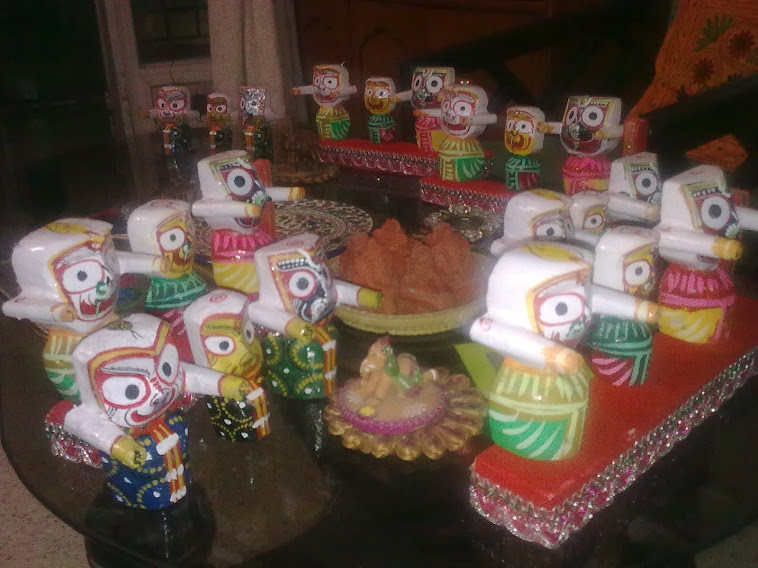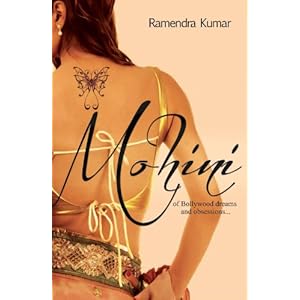I first met Mary Ellen Sanger in Francis Ford Coppola's Zoetrope Virtual Studios way back in 2002. She was an American living and working in Mexico, and her short stories spoke of poor Mexicans and smelt of green trees and fields of their world. Her writing showed a deep empathy for the people among whom she then lived.
We exchanged critiques on each others stories and stayed in touch through the years, forging warm ties. Life went on smoothly until we heard the shocking news of her incarceration in a Mexican prison for no fault of hers. She found her way to freedom after a life-changing experience, which has inspired her new book,
Blackbirds in the PomegranateTree: Stories from Ixcotel State Prison
Indian readers can get it here
Mary Ellen Sanger spent 33 days in Ixcotel State Prison in the fall of 2003. These stories of the women she met there, illuminate her biggest surprise and her only consolation in prison: the solidarity that formed among the women she lived, ate, swept and passed long days with while inside. Nine lyrical tales show the depth of emotions that insist on their own space, even in these harshest of circumstances. The largest and brawniest woman in the prison, doing time for armed robbery, kills a rat with her foot, then turns to the author for help with a very special letter. Another young woman, only nineteen years old, has already been in for three years, guilty of kidnapping her own child. And Ana, a political prisoner, teaches the author about creative ways to turn the tide, one including frog-eating snakes. Mary Ellen weaves her own tale through the stories. Accused of a crime that doesn't exist by a powerful man in Mexico, she depends on the fierce solidarity of friends on the outside, and a brilliant lawyer who trusts in the rule of law... even in Mexico. The women incarcerated in Ixcotel State Prison said that the blackbirds chattered in the lone pomegranate tree in the courtyard whenever a woman was about to be released. They are chattering now.
Here's what she shared with me about her experiences, and the story behind the book.
1. Which writers influenced you the most, and why?
Indian readers can get the book here
 |
| Mary Ellen Sanger |
We exchanged critiques on each others stories and stayed in touch through the years, forging warm ties. Life went on smoothly until we heard the shocking news of her incarceration in a Mexican prison for no fault of hers. She found her way to freedom after a life-changing experience, which has inspired her new book,
Blackbirds in the PomegranateTree: Stories from Ixcotel State Prison
Indian readers can get it here
Mary Ellen Sanger spent 33 days in Ixcotel State Prison in the fall of 2003. These stories of the women she met there, illuminate her biggest surprise and her only consolation in prison: the solidarity that formed among the women she lived, ate, swept and passed long days with while inside. Nine lyrical tales show the depth of emotions that insist on their own space, even in these harshest of circumstances. The largest and brawniest woman in the prison, doing time for armed robbery, kills a rat with her foot, then turns to the author for help with a very special letter. Another young woman, only nineteen years old, has already been in for three years, guilty of kidnapping her own child. And Ana, a political prisoner, teaches the author about creative ways to turn the tide, one including frog-eating snakes. Mary Ellen weaves her own tale through the stories. Accused of a crime that doesn't exist by a powerful man in Mexico, she depends on the fierce solidarity of friends on the outside, and a brilliant lawyer who trusts in the rule of law... even in Mexico. The women incarcerated in Ixcotel State Prison said that the blackbirds chattered in the lone pomegranate tree in the courtyard whenever a woman was about to be released. They are chattering now.
 |
| Chiapas, Mexico, birthplace of the Batista movement |
When I returned to the US after being unjustly imprisoned for 33 days in Mexico, I thought I left prison behind me. But I realized the women I met inside, their surprising solidarity, the sense of community we built together and the many injustices I shared with them in their stories, stayed close with me. I wrote “Blackbirds in the Pomegranate Tree: Stories from Ixcotel State Prison” to share my own experiences in Mexico – most of those experiences lush and full of color – and the story of how the (in)justice system prevalent there seems destined to imprison some of the most innocent of Mexico’s population. And me.
1. Which writers influenced you the most, and why?
Elena Poniatowska, the First Lady of Mexican Letters, graced me with an introduction to my book. We made a sweet friendship several years ago through a chance meeting. I respect her writing for its focus on Mexico’s women, many who are victims of poverty and social inequities. One of my favorite writers on the planet is Uruguayan writer Eduardo Galeano, whose lyrical style I could only hope to emulate. Give me Eduardo Galeano any time of day or night.
2. What is your experience re self-publishing? E-book vs print?
2. What is your experience re self-publishing? E-book vs print?
I self-published “Blackbirds” because my life was too full or work and volunteering and falling in love and moving, to do the intensive research and time-consuming work of finding an agent – which is quite a challenge in the US these days. I tried, and found several who were interested, but not enough. I wanted the book to be out for the tenth anniversary of my release from prison, so I popped it in the queue. It had been edited with the help of a professional editor friend, so I was confident of its quality in that respect. The shift to indie presses and self-publishing is a remarkable surge. However, the ease with which one can enter into self-publishing does flood the field with some astonishingly weak manuscripts, many poorly edited. So I am up against a hearty stigma still – though I do trust that with the proper exposure, and the attention given by people interested in the world of social justice – that my book can cut through the preconceptions around self-published works. I did make the book available in Kindle (e-book) format, which has enriched sales by 20%, as some of my audience is in Mexico and the book is more quickly delivered electronically.
3. Is the craft of writing receding in importance in a world where shoddily written but slickly marketed work dominates?
3. Is the craft of writing receding in importance in a world where shoddily written but slickly marketed work dominates?
I hope the craft of writing is even MORE important in that world you describe. We recognize good writing. We find our way to it. Good writing (that is, talented writing!) is a necessary craft, an antidote if you will – to the instant and slick. If you can make a delicious slow-simmered sauce – that should win out any day over a squeeze-packet of mayonnaise!
4. Would you return to Mexico if things improve there?
4. Would you return to Mexico if things improve there?
I return to Mexico every year. I cannot be too far from her! The justice system is changing… at a glacially slow pace. As of 2008, there has been a mandate to allow for oral trials, and the country is slowly putting in place new practices. It is, however, a long history to counter. It will take time. Meanwhile, I visit each year, I eat my slow-simmered sauces! And I drink in what music and magic I can.
5. What are you working on now?
 |
| One of the nine imprisoned women whom Sanger met and has written about. |
5. What are you working on now?
Thank you for asking! I am trying to write a poem-a-day, as a part of a project started in 2010 with a friend, in honor of National Poetry Month in April. We were going to write those daily poems for one month, but we liked the practice so much we kept on going! We have put out a book of these quickie, unedited poems every year since 2010. Finishing up for 2013. Other than that, a novel is cooking in my head right now, which should involve Mexico and dancing! I won’t say any more. Still simmering!


 Dreams are vital for our survival. If we stopped dreaming, we would be dull, unimaginative drudges living a meaningless existence. But then life is much more complicated than what feel-good aphorisms and self-improvement manuals will have us believe.
Dreams are vital for our survival. If we stopped dreaming, we would be dull, unimaginative drudges living a meaningless existence. But then life is much more complicated than what feel-good aphorisms and self-improvement manuals will have us believe.
